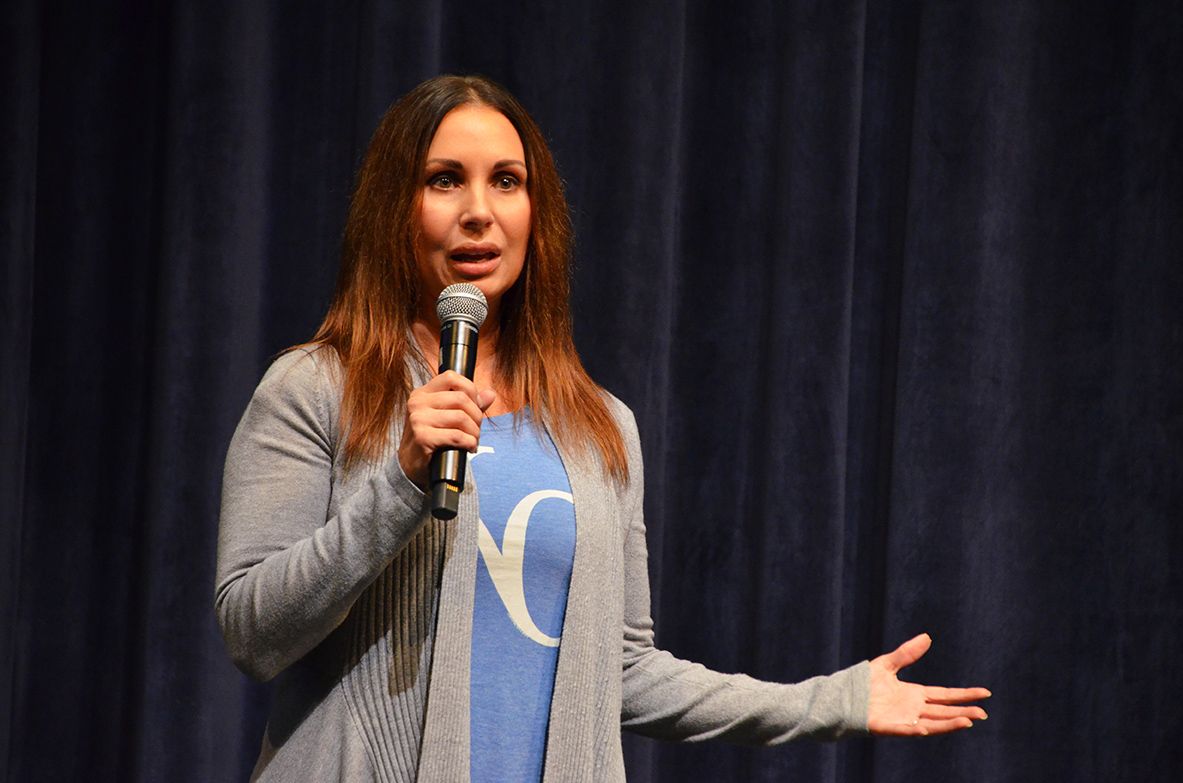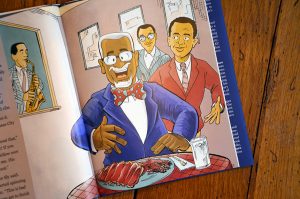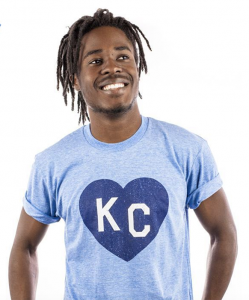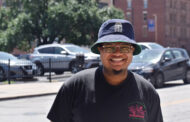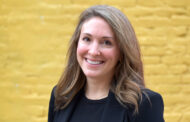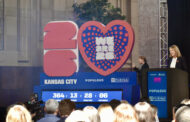Don’t ignore magical timing within the entrepreneur community, said marketing manager-turned-children’s book author Audrey Masoner.
“Kansas City is a place where anything can happen, and you really want to keep your eyes open for connections,” Masoner told a crowd gathered Wednesday for Rockhurst University’s Meet the Makers speaker series. “It’s small enough to be very well connected, but it’s big enough to still be a good city.”
Presented by the university’s Young Alumni Council, the TED Talk-styled event offered insights from four Kansas City makers — Masoner, author of “Mayor Sly and the Magic Bow Tie”; Tyler Enders, co-founder of Made in KC; chef Celina Tio, restaurateur at The Belfry; and Chase McAnulty, owner and CEO of Charlie Hustle.
A Rockhurst alum herself, Masoner embraced the happenstance of meeting Mayor Sly James’ daughter, Aja James, at a local gym. Their connection led the pair down an entrepreneurial path that helped Masoner realize her dream of publishing a children’s book (in this case, starring a cartoonized version of the mayor).
Such collisions are commonplace in the startup community and the basis for many great collaborations, Masoner said. But while entrepreneurs should welcome this “magic,” she said, Masoner encouraged cautious realism.
“I did not quit my job and say, ‘Yay! I’m a writer! I’m so creative!’ I kept my daytime job,” she said of her position at CenturyLink. “I don’t hate my daytime job. It’s great. It pays the bills. It gives me health care. All those things as a writer and entrepreneur I knew were very hard to come by.”
Still, there’s more to life than the walls of a cubicle, Masoner said.
“If you want to do something outside of your 9-to-5, I think you absolutely should. We are more than what we are resigned to within our day jobs,” she said. “I tell people all the time that no one will ever write on my gravestone, ‘Here lies Audrey. She was a fantastic middle marketing manager at a Fortune 100 company.’ That’s not what’s going on there. But some kid’s going to read this book, and it’s going to be in the Library of Congress.”
Check out more highlights from Meet the Makers below.
Tyler Enders, Made in KC
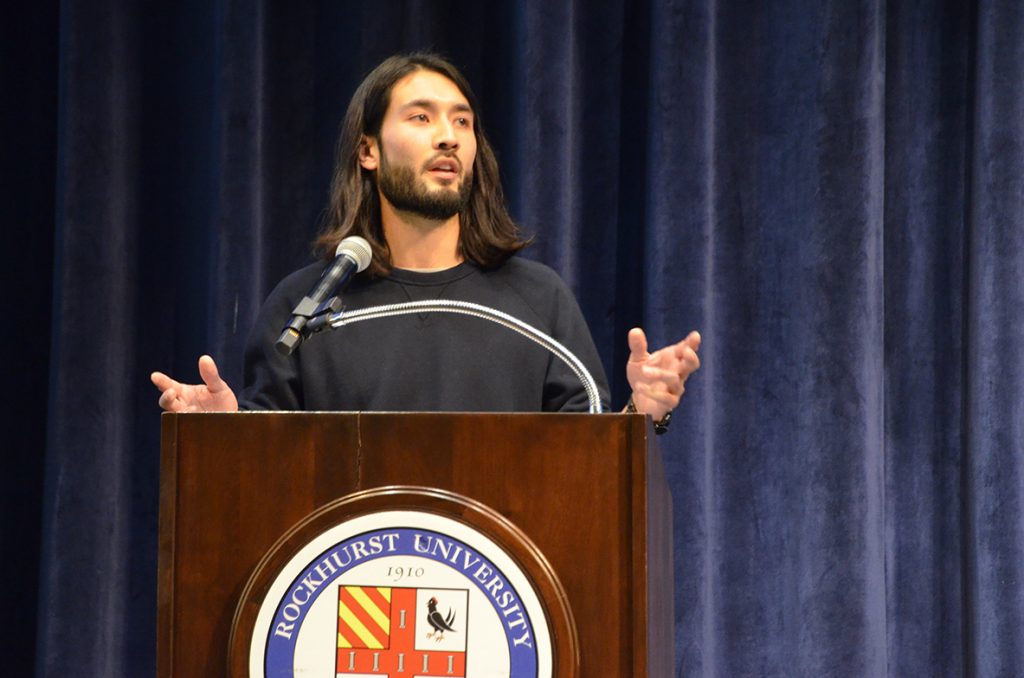
Tyler Enders, Made in KC
Like Masoner, Enders made his success through collaborations with other entrepreneurs. Not only does Made in KC — a retailer of locally made goods — operate in a symbiotic relationship with the maker community, but the team behind the company contains a mix of people with complementary talents.
Co-founded with Enders’ high school soccer teammate, financial mind Thomas McIntyre, Made in KC also utilizes the operational skills of co-owner Keith Bradley. The startup’s new hybrid coffee shop-retail space downtown tapped into the talents of coffee director and New Orleans-based food innovator Ozzie Mendoza Diaz.
“I’m a huge fan of partners because they’ll keep you motivated,” Enders said, noting partners also provide a sounding board for talking about the business, troubleshooting, brainstorming and sharing wins and losses.
Of course, providing equity to a partner isn’t free, Enders cautioned. Choosing wisely is of paramount importance — whether it’s for a full-scale team member or a service provider like a graphic designer or web developer.
“Vet those people and don’t spend any money until you’re completely ready to go,” he said. “I can’t tell you how many beautiful logos are sitting out there without companies, how many websites are sitting out there without any product.”
Celina Tio, The Belfry
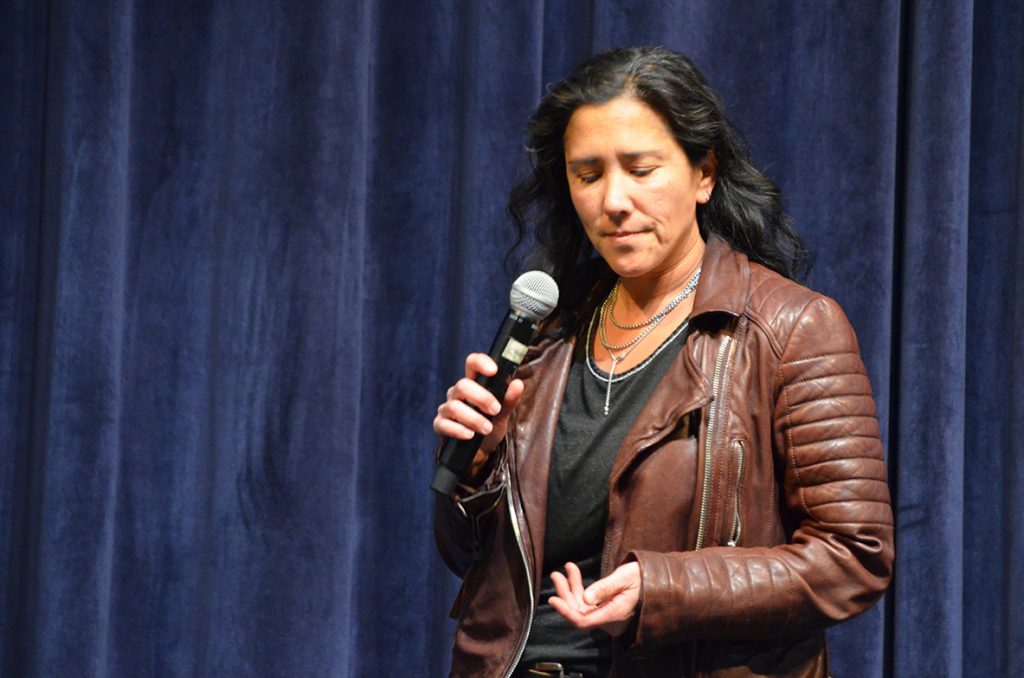
Celina Tio, The Belfry
Joining The American restaurant in Kansas City in 2001, Tio built a name for herself as one of the city’s top chefs. Her work at the iconic fine dining locale culminated with a James Beard Award in 2007.
“It gave me a platform to do anything I wanted,” Tio said.
But what did she want?
Her options were to remain comfortable at The American or strike out on her own. Amid the economic downturn of 2008, her father was skeptical. He’d seen her grow from a child who loved watching Julia Child and other celebrity chefs on TV to a pre-teen who he’d sneak into adult cooking classes, and finally to an award-winning chef who could hold her own under pressure.
Ultimately, he decided to invest in his daughter’s dream. They took a risk and she opened her Brookside restaurant Julian in 2009.
“You have to put yourself in uncomfortable situations if you want great things to happen,” Tio said.
Julian flourished for eight years before closing in June 2017 when its lease was up, she said. Shuttering Julian was bittersweet because of the memories associated with the popular neighborhood hangout, but it allowed her to focus on another endeavor: her Crossroads pub, The Belfry.
Read more about Tio’s journey as an entrepreneur here.
Chase McAnulty, Charlie Hustle
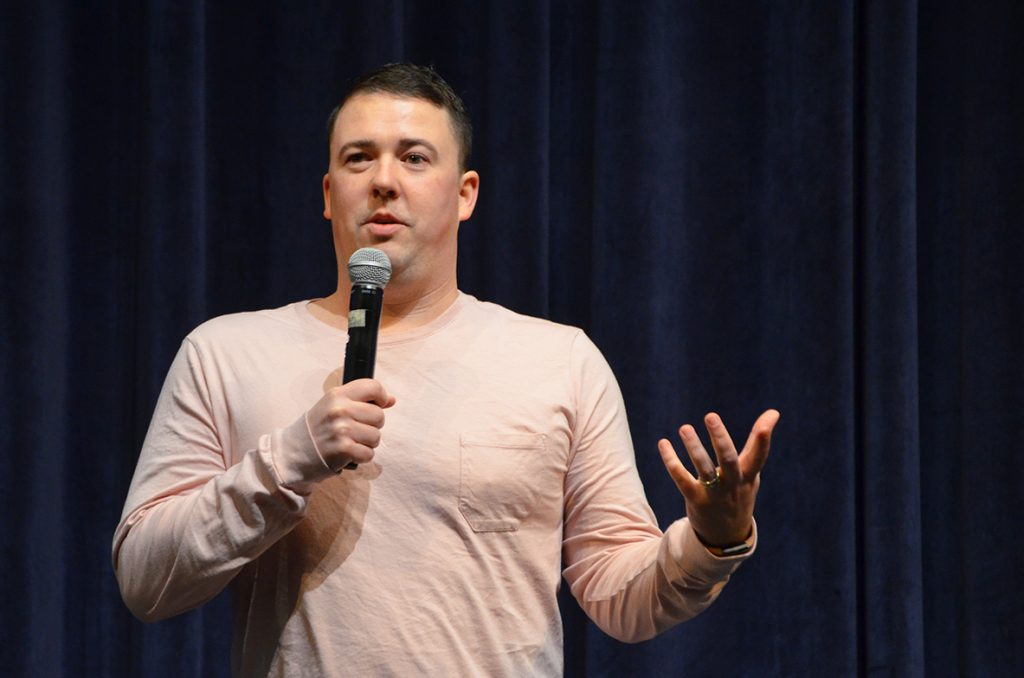
Chase McAnulty, Charlie Hustle
Taking the stage as the final Meet the Makers presenter, McAnulty reflected on the words of his fellow makers — each sharing their own truth as early stage and growing entrepreneurs.
“What’s most relative in all of this is: They’re all right. They’ve all have experiences — different trials and tribulations — that they’ve been through,” he said. “But nobody actually has all the answers. It’s kind of up to you to go find them.”
A book, “Predictable Success” by Les McKeown, has helped to guide McAnulty as he embarked on a quest to turn his passion for vintage T-shirts into a profitable apparel business, he said.
“It really resonated with me along my journey because this is not easy. It’s hard,” McAnulty said. “But it made me understand that it’s OK to be where we are. It’s actually right where we’re supposed to be. The first stage of getting into predictable success is struggle.”
“Struggle is when you don’t know what you’re doing, and everybody’s like, ‘What are you doing?’” he added. “For me, I was The T-shirt Guy. That’s not really cool.”
But an unpredictable turn of events in 2014 — when actor and Kansas City native Paul Rudd wore Charlie Hustle’s now-iconic KC Heart tee repeatedly on TV throughout the Royals World Series run — both accelerated McAnulty’s company’s growth and caused even greater challenges, he said.
“I remember Oct. 29, 2014, I was sitting across the table at dinner with my wife — my future wife at the time — and we were almost in tears,” he said. “We were like, ‘What are we gonna do? How do we fix this? How do we package all of these orders?’ Our screen printers couldn’t keep up. Our suppliers couldn’t keep up. It was just this fascinating quick growth.”
Charlie Hustle was flying by the seat of its pants, McAnulty said.
“You don’t really know what you’re doing, but you’re focused on sell, sell, sell, grow, grow, grow,” he said.
After the dust settled, McAnulty’s business found itself in an awesome position, he said, having learned a variety of lessons along the way, but facing a whole new slew of curveballs ahead as Charlie Hustle enters what “Predictable Success” calls the Year of Scale.
“We’ve spent the last five years really building a brand and we’re in year six,” he said. “It’s almost a whole home ballgame.”



